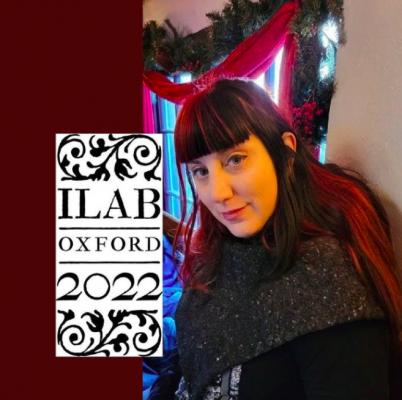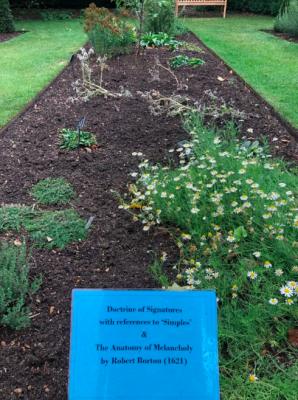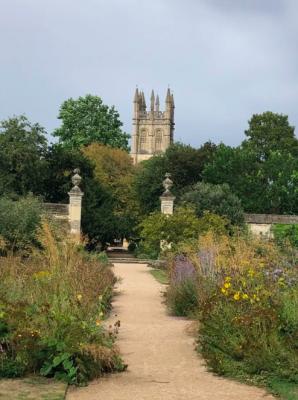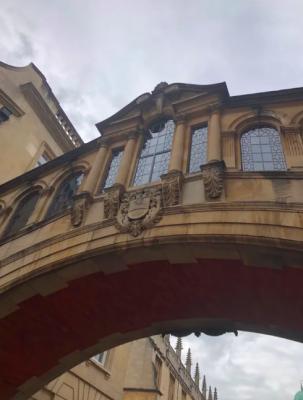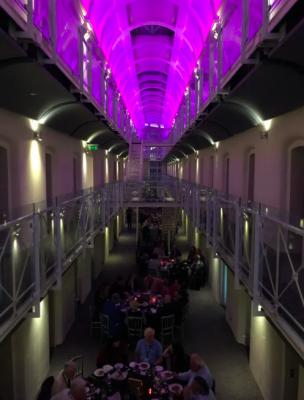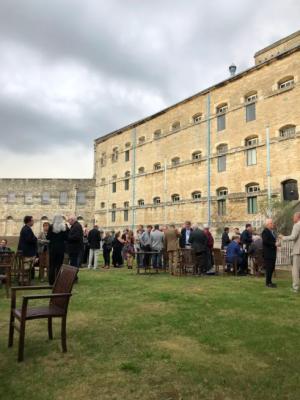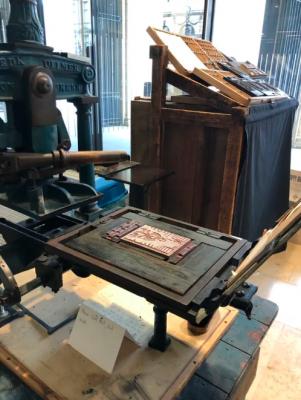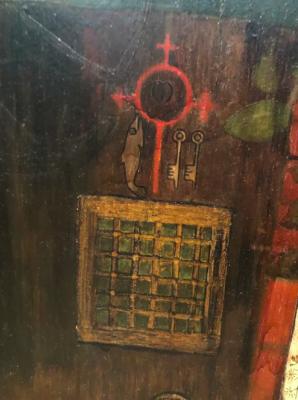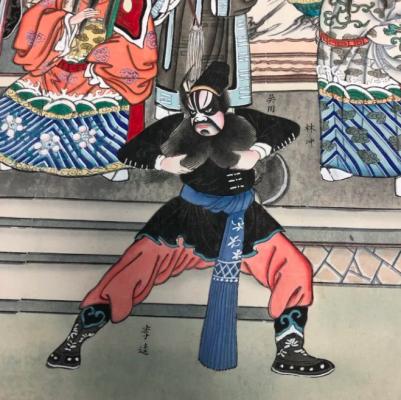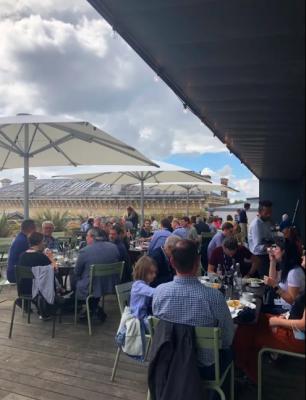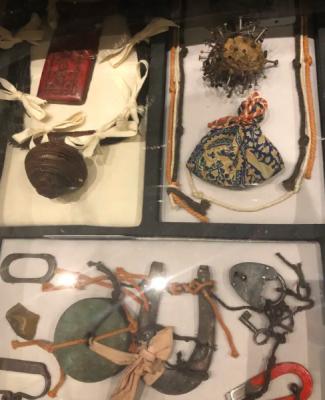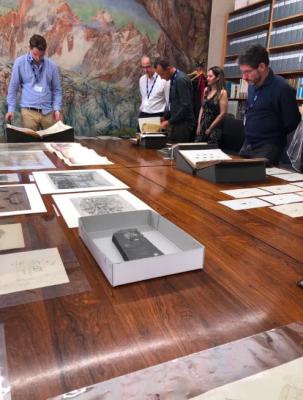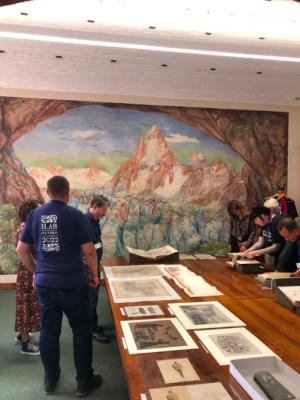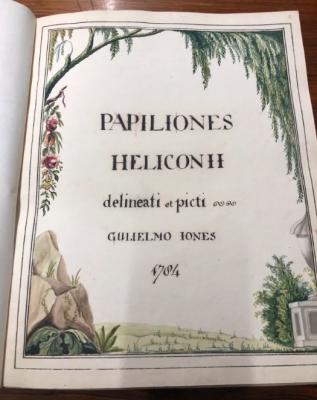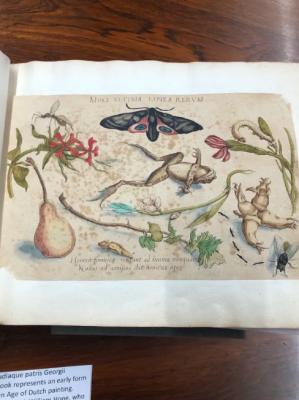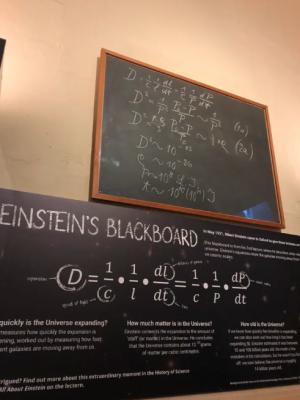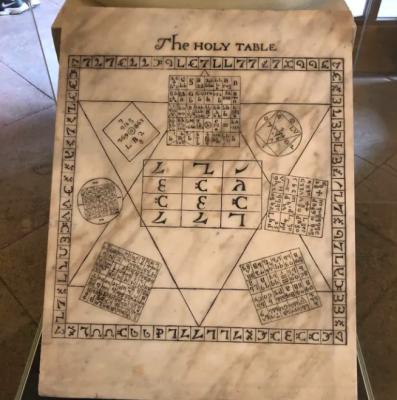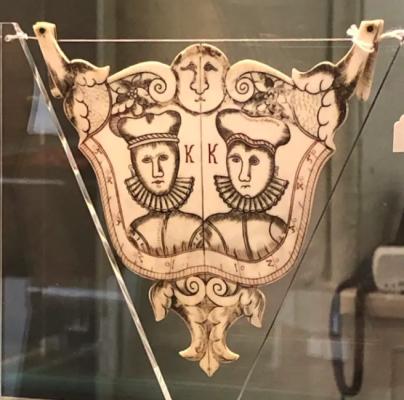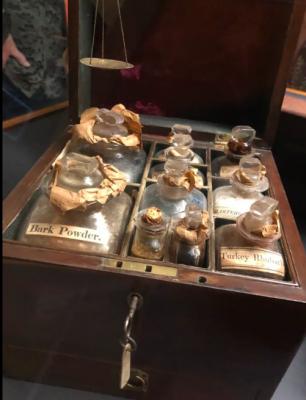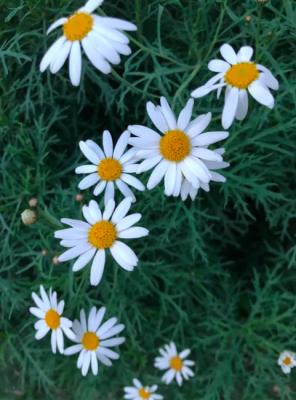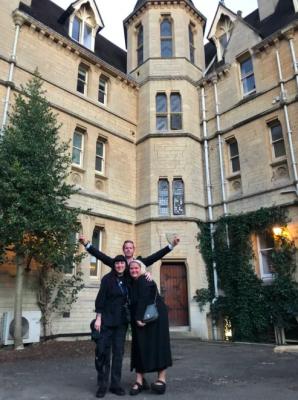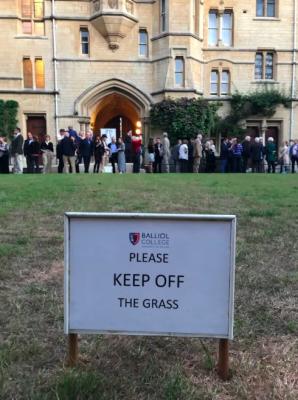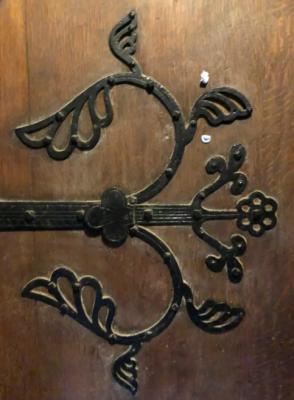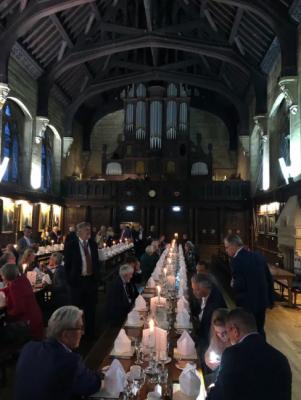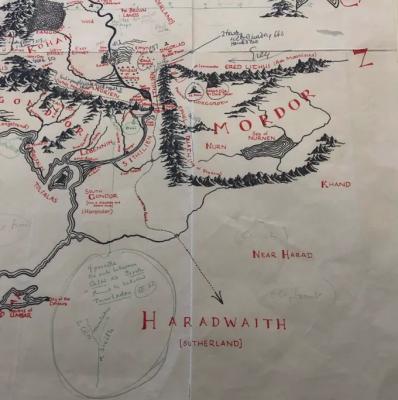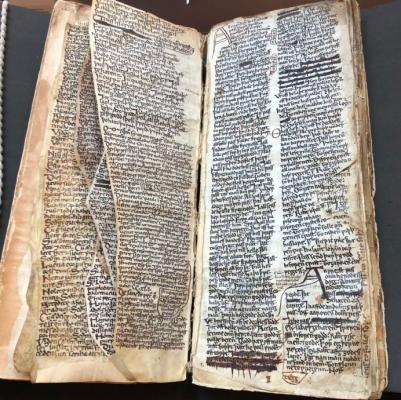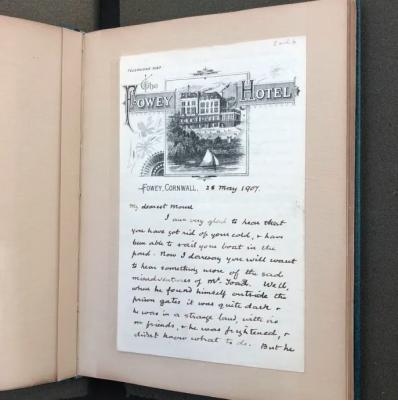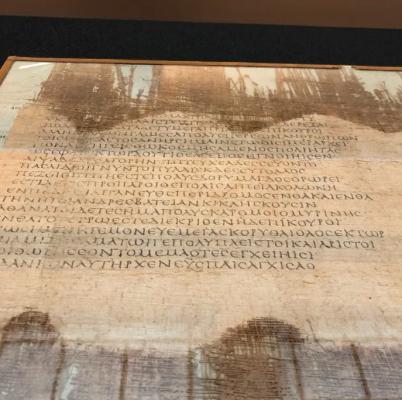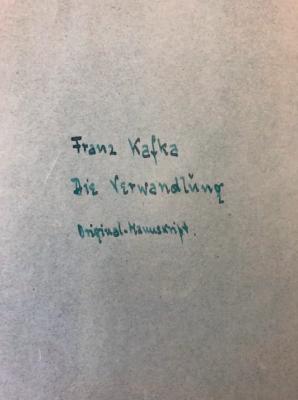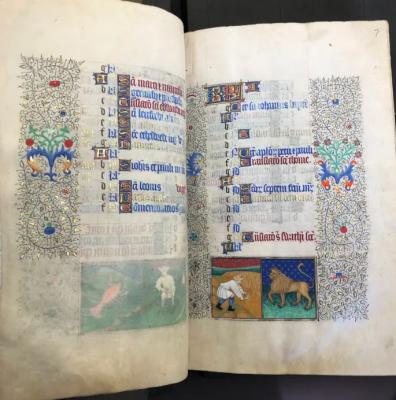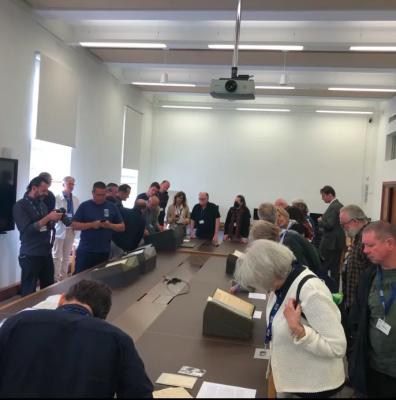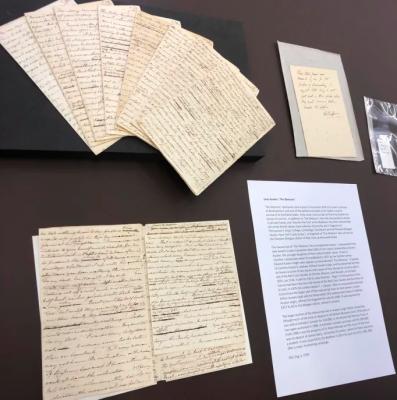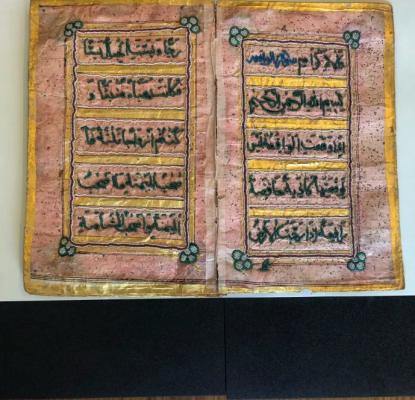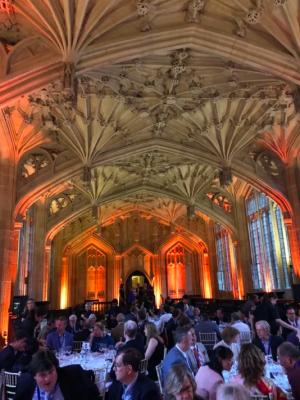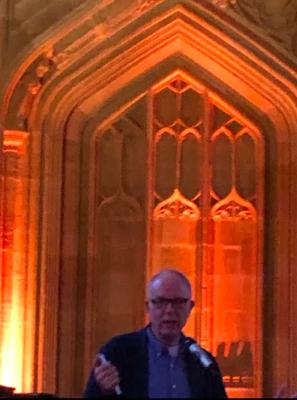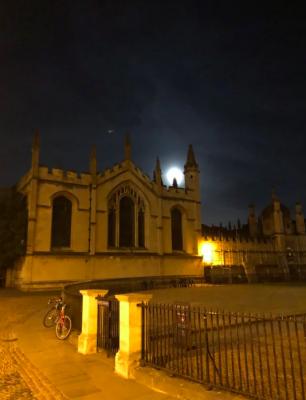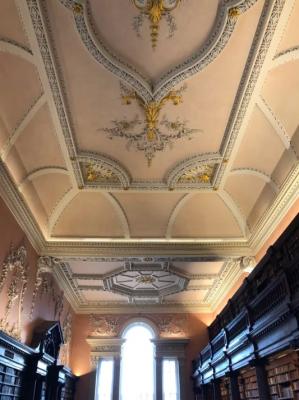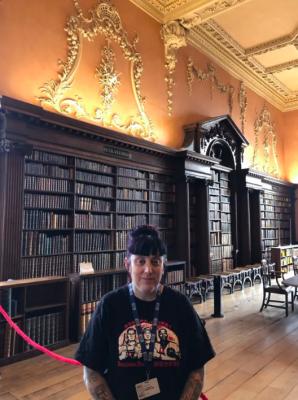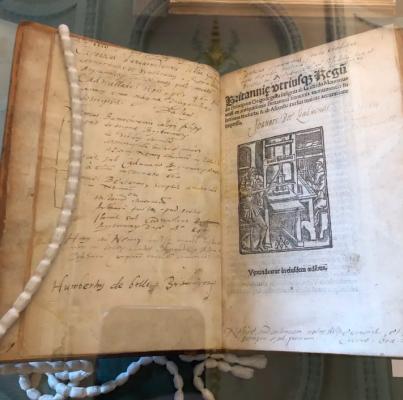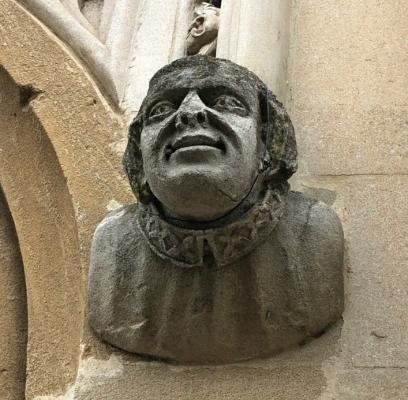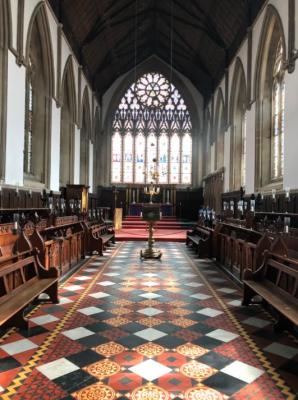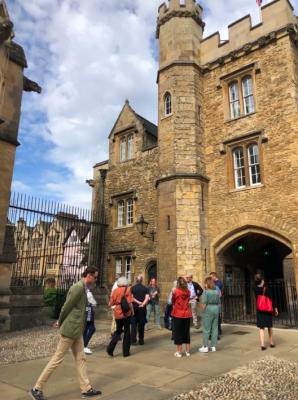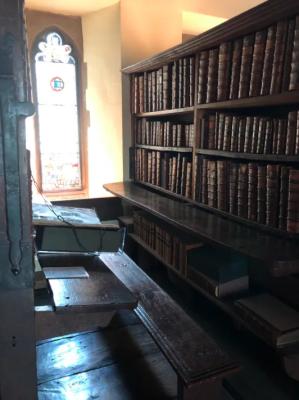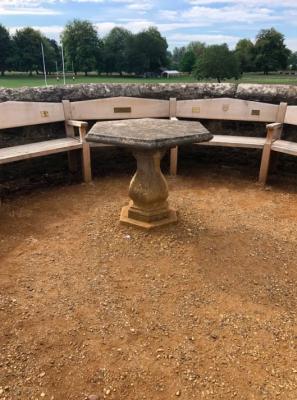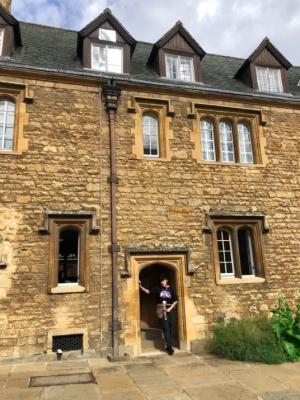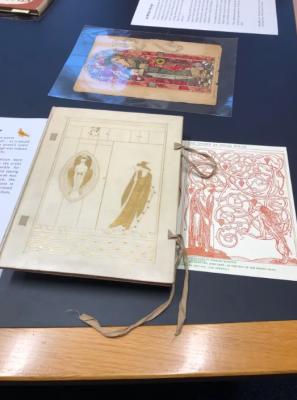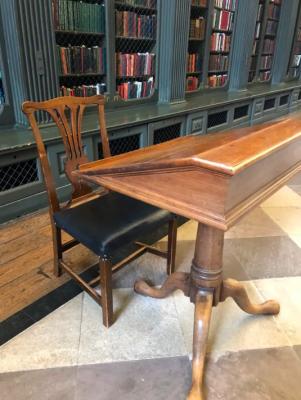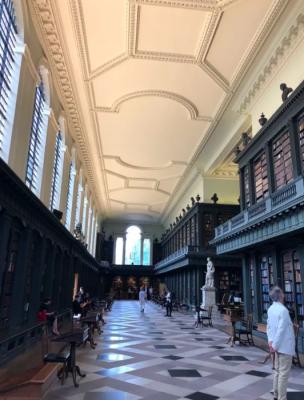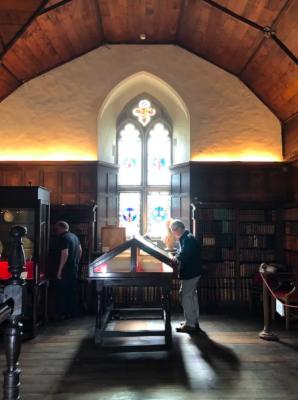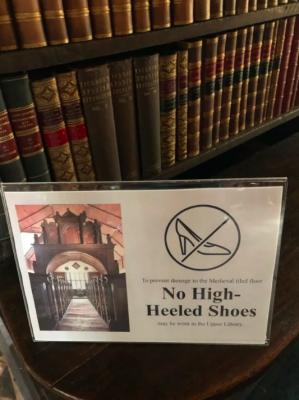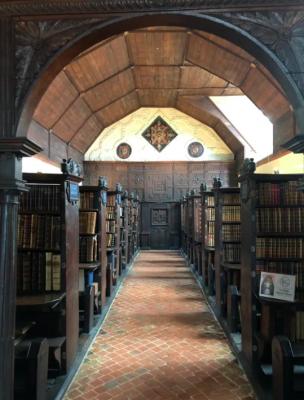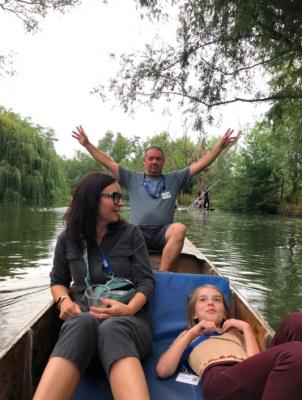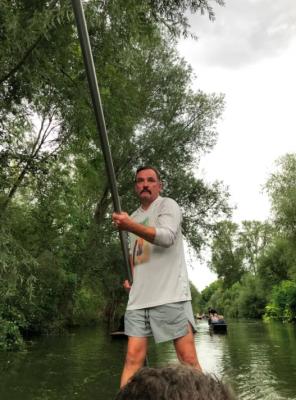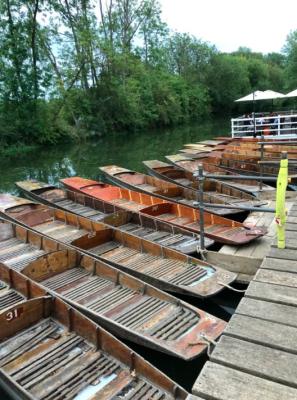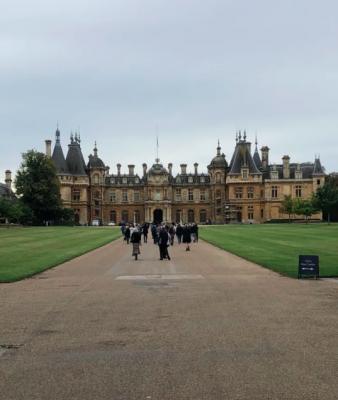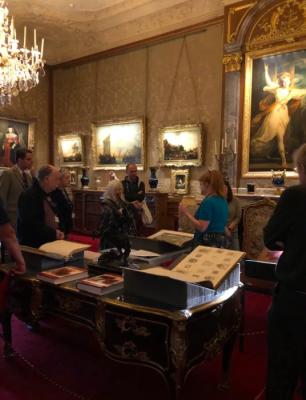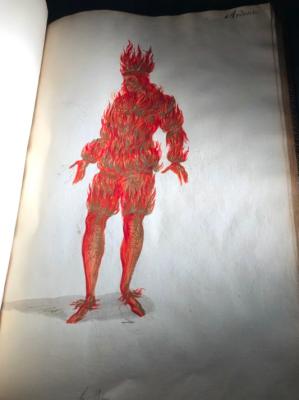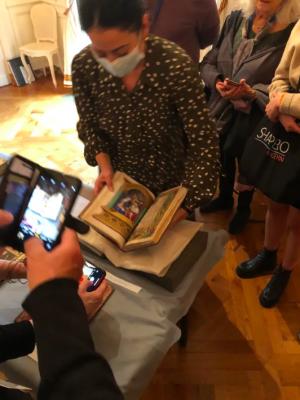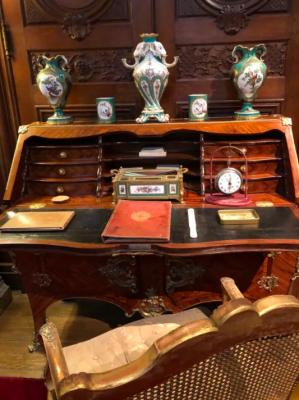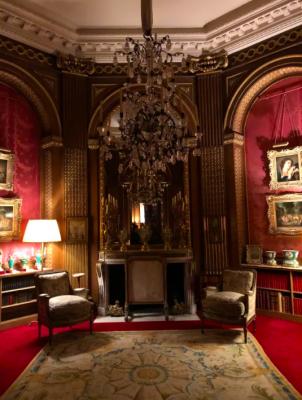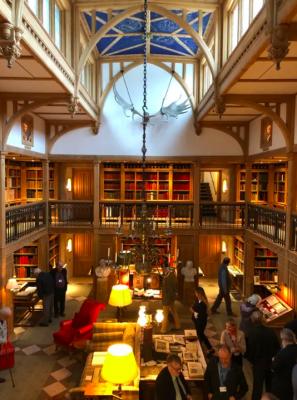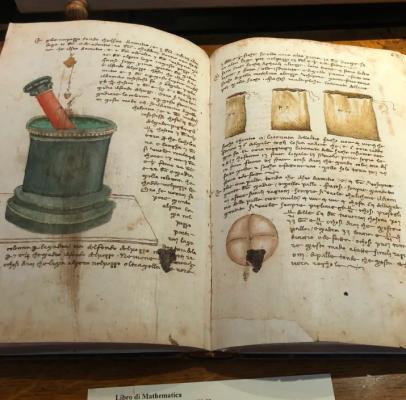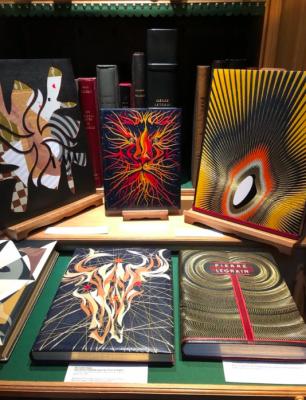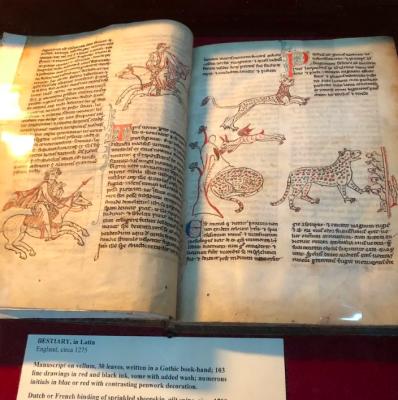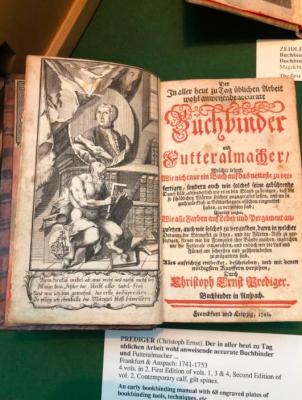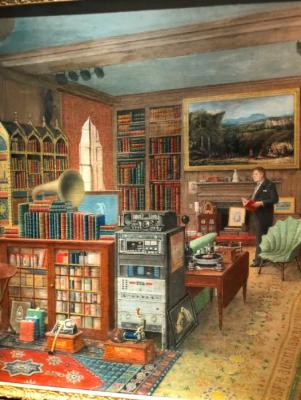Actualités
"The books did speak, loudly" Kim Schwenk of Lux Mentis Booksellers recalls on the ILAB Congress in Oxford
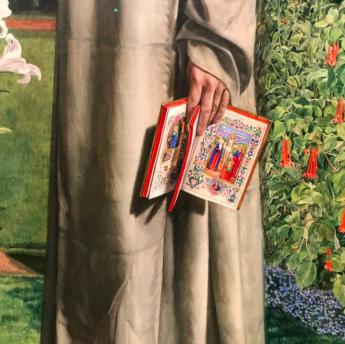
Oxford, UK, International League of Antiquarian Booksellers, 2022, Team Wilde
Parati sumus seruire Deo nostro. This work shall haue relation to tyme present, and present use. To mysteries far exceading it: And finally to a purpose & Intent: whereby the Maiestie and Name of God, shall and may, and, of force, must appeare with the Apparition of his wunders, and mervayles yet unhard of. —From De Heptarchia Mystica of Dr. John DeeWe look at texts of mysteries and wonder to be aspired. I walked the halls of cold stone, peeking creatures and whispering trees. The books did speak, loudly–as did the whispering trees. The books, however, were speaking loudly. Some sitting upright since the 13th century, waiting to share their stories. Oxford became a pilgrimage for me. A look into these most sacred of spaces.
In September 2022, I attended my first ILAB Congress. I was particularly excited because it was held in Oxford. I suppose it is in my nature to be an antiquarian. I have been working in libraries since I was about 17. While I comply with the contemporary technologies of our digital age and see the benefit to habituating with such conveniences, there is an irreplaceable confluence in the physicality of spaces and intellectualism in a place like Oxford. Just by being in Oxford, my desire to connect people with the physical book became even stronger. We came together to perpetuate the posterity of the printed book, the primary source, a ghost trace in a photograph. The power of anachronism isn’t just for folly, it is the influence to make our synapses crackle and drives our humanity to construct a web of support within society. Without a drive to pursue the ‘real’, I’m afraid the chaos and disillusionment some of these conveniences allow will create the road to apathy.
I sat at the table where Oscar Wilde was disciplined. I looked at the private book carols of kings, walked along the path of Queen Elizabeth I. I ate within Divinity. Gazed upon many dead animals skins. Reminded, again and again, that the library is an incubator, a crypt, a workshop and a calculation of the universe for all the infinite possibilities flooding a persistence of memory, records in space and time.
I must first recognize my privilege to be here. The ILAB committee granted me a scholarship, for that I am truly grateful. I mentioned in my statement that part of the professional standard for me, in addition to ethical business practices, is I recognized something extraordinary about working with collectors, librarians, and scholars, and that I had only partial exposure to this world working in libraries. I have been only working with Lux Mentis, Booksellers for a few years, coming out of rare book libraries. Relevant to my own pursuits, I have developed a subject specialty for occult and esoteric material, and it is my intention and desire to become one of the more recognized specialists in this field. I really want to be visible amongst my peers, as not just a bookseller, but as a bibliographer and a scholar. I’m hoping my approach recognizes cultural agency and contextualization for underrepresented aspects of occult history, more specifically, women authors and indigenous people of color narratives. I think it is important for the book trade to be recognized beyond the commerce of trade for the scholarship of its members.
Secondly, a critical aspect of the ILAB Congress is to bolster collaborative working relationships between the U.S. and international partners within the trade and I hope and believe this was nurtured by my attendance at the Congress. I have a great deal to share from my experience as a librarian and a rare book cataloger which may well be even more important in lieu of current events in the trade and librarianship. We must continue to strengthen our collective knowledge with partnerships between libraries and booksellers. Finally, I know there is a deep international tradition of buying and selling antiquarian occult books. It is my intention to strengthen my experience as an occult specialist in the U.S. with the hope of engaging with other international specialists on the importance and recognition of occult book history and further exposure of contemporary occult book publishing.
To be invited into these places, with direction and curiosity, is a remarkable honor for which I was immensely grateful. These places do, however, beg the question, why do we collect? Why do feel the right to parse information, aggregate, describe, and house intellectual and cultural objects? Is there power in acquisition? In self-examining these questions, I recognize the haphazard judgment of humanity. We do build walls around the idea of assumed dreams and ambitions. We put up masks to gaze upon and wonder how a person lived. We put books in row, like fingers of a skeleton, a cemetery of stories. The truth is, we need narrative. We also need the living to place the dead on a pulpit, as the cycle will not stop, the living seeking the dead, the dead then staring back as a reminder to live. We need to have available these lived experiences to advance everyone’s perpetuity.
Working in Special Collections libraries for over 20 years, I’ve learned to how best to use the term ‘treasure.’ In an antiquated way, the term implies ‘fragile.’ Do not touch, hands off. “We will keep this item in a sealed jeweled box and no human, insect, or earthen air will come in contact.” There is an actionable job to maintain the relationship between accessibility and preservation or security. Gatekeeping is dangerous when it becomes selective and unreasonable. When we ‘see’ objects, when we handle physical materials, we engage a different level of senses. Paper has a scent, ink bleeds differently, gold shines in the natural light, cloth frays and the skin crinkles and cracks when you turn the pages. Liking looking at a monster of a book. The Medieval fragmentary manuscript, bound together like a college student’s notebook with various endnotes, footnotes, a marginalia Frankenstein. His mind, his hand. A creature of habit and of his own liking.
I don’t feel the book trade will survive without collegiality. I also don’t feel it would survive without fairness. Yes, it is a commerce business. It is business, however, that thrives when competition is transparent. The respect built between colleagues is gratifying and grounding when spoken and communicated to each other.. Our time is best spent with sensibility, collaboration, and ingenuity.
My first exposure to a library was a modest Carnegie Library in a small Indiana town. There is no doubt in my mind that had I not had the exposure to libraries, my life would have ended up very differently. Libraries are investments in opportunities. As a bookseller, opportunity is an idea to ponder apart from exchanging goods and money. Different aspects of the book world function differently, of course. Academic libraries have an obligation to the students and the educational discourse, as it will eventually inform the entire community. I sensed a great deal of effort of responsibility at Oxford University to identify those obligations.
It is very easy to get caught up in the magic and glamour of Oxford’s Colleges. We see these places in movies; we recreate the spaces in literature. Yet students study and live here. People work and live here. The person who swept the floor in the 14th century Merton College Library is a part of the timeline, as much as Sir Henry Savile and Thomas Bodley. It is a real place to study under the Tolkein tree.
Pro tip: When in Oxford, go punting.
Field trip day. While I am not naïve to the idea of wealth, nor overwhelmed by wealth, I am quietly reminded by what enormous amounts of wealth can represent. It can embody a castle, land, or material objects in the broadest sense. I will refrain from pondering the implications of the nature of such wealth and simply expound on the great beauty offered from the estates of Waddesdon Manor and Wormsley Park Library. Words like: incredible, overwhelming, haunting, grand are just entries of thesaurus. It brings to mind, as an outsider looking in, what is the nature and purpose of a specific private collection? The obvious is: people collect what they like, what is appealing, what is valuable to them. The physical private library is a vaulted investment…intellectual and arguably monetary. I tried to look apart from the structure of class to find a metaphysical source of enlightenment. Private collections represent moments of wonder to remind us that humanity still generates and benefits from intellectualism, imagination, and (again) opportunity. Being on this trip reinforced in me a desire to advocate for anyone and everyone to collect the printed and written word. As I am passionate and invested in this profession, being here, in these remarkable spaces, I was reminded again and again of how much I want to mentor others. I now have to organize the tools given to me and do the work.
I need thank my super spouse, Keith for accompanying me on this journey. Also, our delightful leader, Daniel Crouch of House Wilde,the ILAB Oxford Congress, the entire ILAB and ABA committee team for the opportunity, my friends and colleagues in the trade, and new friends from different countries I, with my partners at Lux Mentis, Booksellers, was able to meet and network with, many of the staff from Oxford University and private libraries, as well as all the host staff in the hotels, dining, transportation, and grounds, and the little mouse who greeted us at Merton College gardens. Thank you all many times over.
This article was written and published by Kim Schwenk of Lux Mentis and first published on 25 October 2022 on the Lux Mentis Blog. It is republished here with permission of the author.
Photographs by Kim Schwenk and Keith Royer

